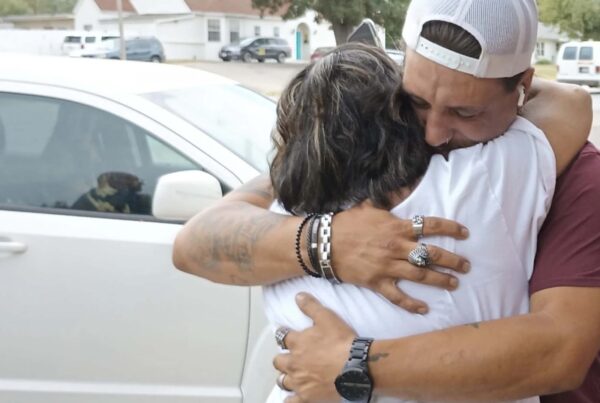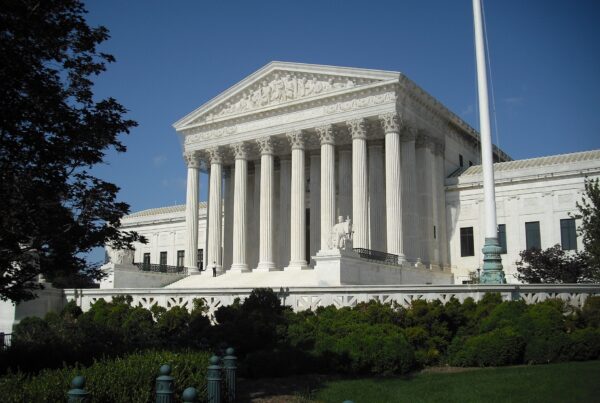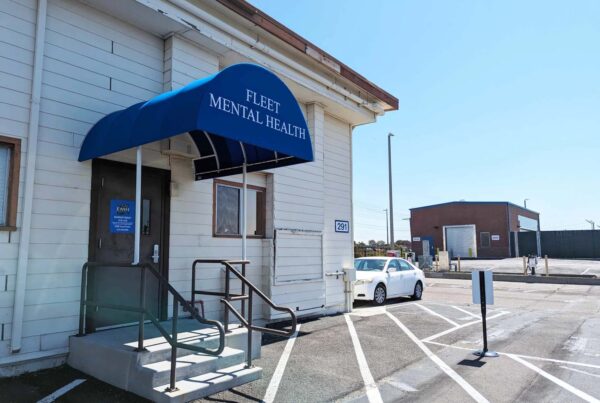Though the real estate industry has rules, the large investment housing industry is much more loosely regulated. ProPublica found that elderly and desperate homeowners were being targeted for the sale of their homes – making backing out of the sale virtually impossible.
The stress left many elderly homeowners on a swift decline in health, and some family members say lead to their death.
Byard Duncan is a reporter with ProPublica and worked on this story. He spoke with Texas Standard on what exactly the business practices are for Dallas-based HomeVestors, the franchisor at the center of their investigation. Listen to the story above or read the transcript below.
This transcript has been edited lightly for clarity:
Texas Standard: I know that the real estate industry has very specific rules, but you found that these investment companies were essentially house flipping, which isn’t quite as regulated. Could you explain what they were doing?
Byard Duncan: So we found a pattern of bad behavior among HomeVestors franchisees – there are about 1,150 of them across the country. In some cases, franchisees were suing sellers to enforce the below market sales of their homes. In other cases, they were doing something called “clouding the title,” which is a kind of fancy legal term to achieve the same end, basically to make it hard to sell to a higher bidder. And even in one case, we found criminal charges and ultimately a guilty plea to one Southern California franchisee for doing business as a HomeVestors franchise.
Can I ask you about HomeVestors? Are they the company that runs “We Buy Ugly Houses”? And who are Patriot Holdings?
Sure. So HomeVestors of America, founded in 1996, they refer to themselves as the largest home buyer in the United States. They’re basically a house flipping company who claims to have helped professionalize the world of real estate investment. Of their franchises, Patriot Holdings is one of the biggest and most successful. It’s a Southern California-based franchise that was run by a group of brothers.
Now, we should talk about the Evans brothers and maybe you can tell us why they factor in such a big way with this story.
So the Evans brothers are one of the largest and most successful investors franchises. I think they’ve been with the company since around 2014. They began by operating in Southern California. I believe they have franchises elsewhere now, including Oregon and Texas. And they were a franchise that we took a very close look at because they had a pattern of doing a lot of these practices that experts we talk to referred to as “predatory.” And ultimately, Cory, one of the brothers, pled guilty to two felony charges, though Patriot Holdings is still operating as a franchise of HomeVestors of America.
Can I ask you to explain how this works and how elderly homeowners can be targeted by these practices?
So like you mentioned before, in many cases, especially with real estate agents, there’s a code of ethics, there are laws all kind of orbiting around that a real estate agent has a fiduciary duty to get the best deal possible for you. Real estate investors often are unlicensed and don’t have the same duty. Their financial duty is to their own best interest. So in order to make a profit, any real estate investor, not just a HomeVestors franchisee, has to basically buy your home below market value and then either hold it as a rental property, fix it and flip it, or do something else called wholesaling, which is basically selling the contract to another investor and keeping a portion of the proceeds there.
Now, let me be clear, there’s plenty of folks out there who go into these transactions with clear eyes and just want a fast sale of their home and they understand that they’re taking a discount. But in many cases, also, it’s true that the real estate investor misleads the seller about the value of their home, gets it below market value and then makes a profit.
Well, I mean this idea of buying a house for less than it might be – less than its market value – or buying a house, fixing it up, you know, that’s the stuff that you see on television all the time. So there’s nothing inherently illegal about that practice. But was there something that you found that was illegal about what HomeVestors or the “We Buy Ugly Houses” approach involves?
Well, where you get into trouble with individual actors is when you begin misleading people about the value of their home. When you use pressure tactics such as clouding their title to ensure that they don’t walk away from the deal. There are a variety of different laws in different states and cities that, in some cases have a, for example, a cooling off period where if you’re an elderly seller and you realize you’ve signed a contract to sell below market value, you have a few days to back out of the deal. But that’s not the case everywhere. And what we found was basically a pattern of strong arm tactics and legal maneuvers to ensure that these deals that got signed, sometimes by elderly sellers, were final and they couldn’t back out.
And I guess sometimes an elderly seller might not realize that they’re not dealing with a real estate company that’s representing them. They’re dealing with a company that’s purchasing their house and, as you say, doesn’t have a fiduciary or really any other duty to the seller.
Another thing, too, about the tactics of HomeVestors specifically is their handbook includes all sorts of different detailed instructions about how to find distressed sellers, how to find their pain, how to cruise through neighborhoods, looking for signs of distress such as water shut off notices, police tape, burn scars, things like that. So finding desperation is definitely part of the M.O. of HomeVestors.
What does the future for these companies look like, and is anything being done to address these issues at a state or federal level?
So it’s tough to tell what the future of HomeVestors and real estate investing in general might be. I think it kind of comes and goes and ebbs and flows on the strength of the housing market. I don’t think this world of real estate investment – unlicensed real estate transacting – is going anywhere. You know, I think that when the housing market goes down, there are just more distressed sellers who maybe need to sell quickly. So regulation of unlicensed real estate investing is a patchwork. Different states have different requirements about what you can and cannot do.
Philadelphia some have considered a model of how to really try to rein in these practices. Philadelphia has a provision where if you continue getting flyers in the mail from people wanting to buy your home, you can report them and they’ll be fined. I believe Philadelphia also requires that real estate investors disclose certain information to sellers before they transact with them. Atlanta has similar laws, and at the state level you see unlicensed real estate activity, also known as wholesaling, being regulated in Oklahoma, Arkansas and elsewhere.













